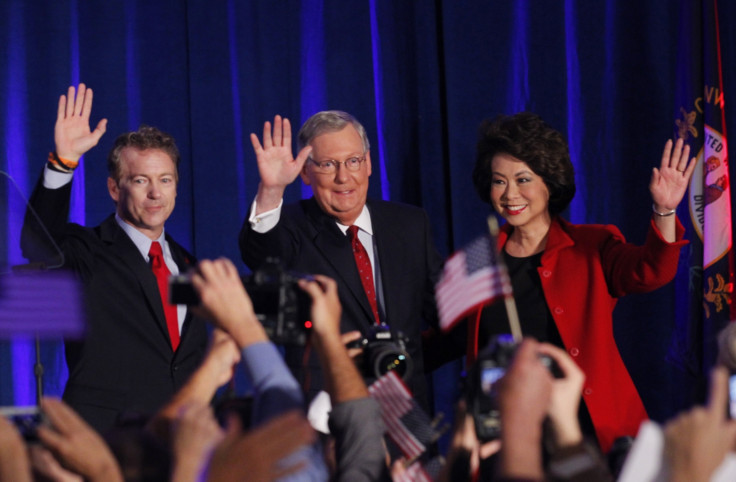Republican Takeover: Nomura Warns US Foreign Policy Will Shift on Midterm Election Result

The Republican takeover of the senate will not only mark a change in focus for the US government but it will also lead to a shift in foreign policy, says a prominent political risk analyst.
According to the latest note by Nomura's Alastair Newton, US Presidents usually find they are forced to turn towards foreign policy, in the event of an incumbent party defeat in the US midterm elections.
"With the Republicans in control of both houses of congress, we may see some market-relevant shifts in US foreign policy, especially over energy and trade on the economic front and over China, Iran and Russia on security," said Newton, senior political analyst at Nomura.
"[US President Barack] Obama – who has, in my view, focussed largely on a domestic agenda since coming into office – follows the conventional path.
"This is a scenario, for example, midway through a second term and with the opposition in control of the Hill – where US presidents, faced with domestic gridlock, traditionally turn to foreign policy."
In the midterm elections saw Obama's Democrats succumb to a crushing defeat by the Republicans, leading to them losing control of the Senate.
"To date, President Obama has been focussed principally on domestic policy; and, in my view, it remains to be seen whether he will follow the 'conventional' pattern and become significantly more engaged on the international stage," said Newton.
"Nevertheless, I think that the outcome of the midterms could result in some shifts in US foreign policy, including in areas relevant to markets – albeit, perhaps, based principally on a Republican Party agenda."
© Copyright IBTimes 2024. All rights reserved.






